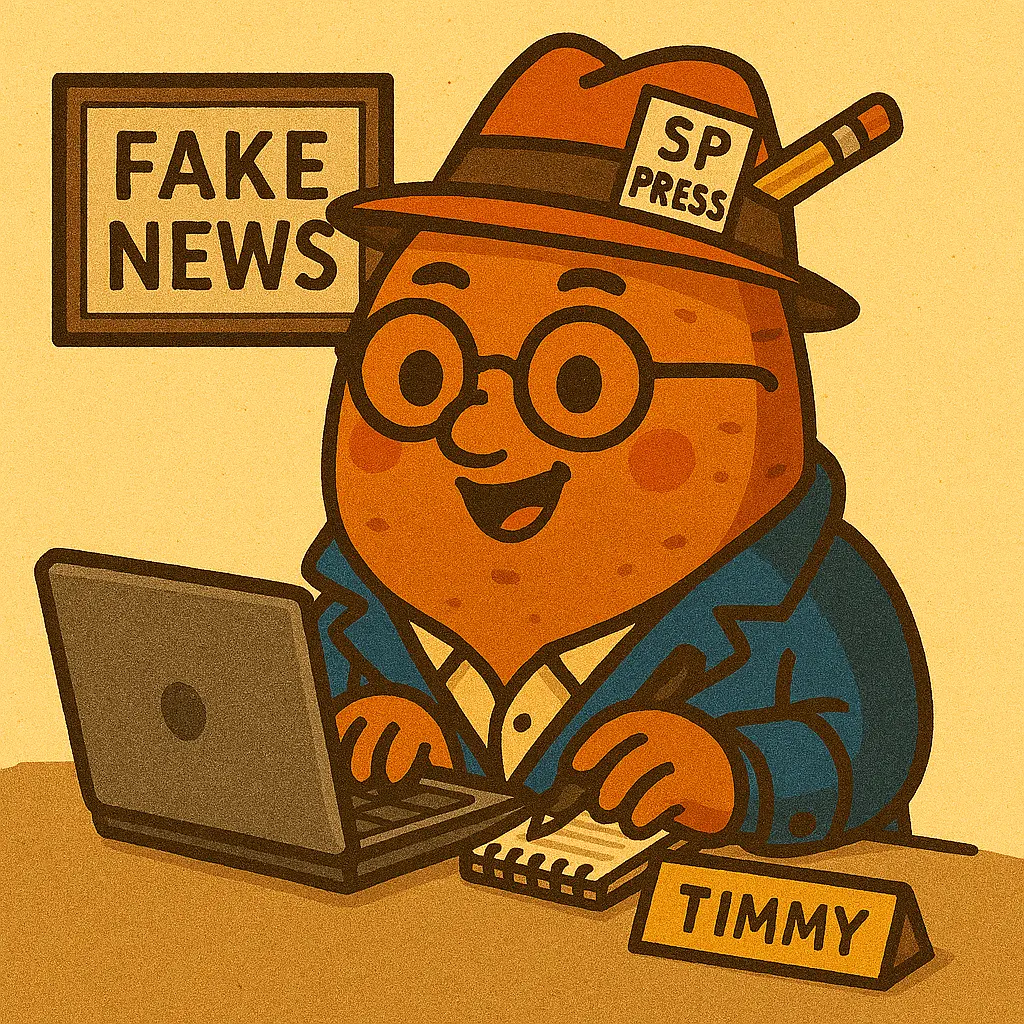
By Timothy T. Tater, Editor and Chief Spud
The Sweet Potato
Breaking: Bentonian Spends 47 Minutes Choosing What to Watch, Watches Nothing
In a stunning display of decision paralysis that has become the defining characteristic of our era, Benton resident Jamie Thompson reportedly spent nearly an hour scrolling through streaming platforms before ultimately deciding to watch TikTok videos of people making the same pasta dish they’ve seen 847 times.
“I have access to more entertainment than any human in history,” Thompson explained while mindlessly swiping past their seventh cooking video. “Naturally, the only logical response is to feel overwhelmed and watch a 30-second clip of someone’s breakfast routine.”
The phenomenon, which scientists are calling “Peak Content Paralysis,” affects millions worldwide who somehow lived through decades with only four TV channels but now find 47,000 viewing options utterly paralyzing.
Aurora Man Discovers Revolutionary Life Hack: Remembering Passwords
In what experts are calling “a return to the ancient ways,” 34-year-old Dennis Fletcher has reportedly begun memorizing his passwords instead of clicking “forgot password” seventeen times per day.
“I know it sounds crazy,” Fletcher admitted, “but I thought, what if instead of creating a new password every time I want to check my email, I just… remembered one password? Revolutionary, I know.”
The technique, once common among prehistoric humans (pre-2010), involves the radical concept of using the same combination of letters and numbers more than once.
Fletcher’s friends remain skeptical. “Next he’ll probably suggest we memorize phone numbers,” scoffed colleague Sarah Staples, while resetting her password for the third time that morning.
Scientists Baffled as Humanity Develops Supernatural Ability to Lose AirPods in 4×4 Foot Room
Researchers at the Institute for Inexplicable Modern Phenomena (IIMP) are stumped by humanity’s newfound superpower: making small, expensive objects vanish within impossibly confined spaces.
“We’ve documented cases of people losing AirPods in rooms smaller than a prison cell,” lead researcher Dr. Amanda Foster explained. “One subject lost their earbuds in a bathroom with literally nowhere for them to go. They weren’t in the sink, on the counter, or on the floor. We’re beginning to suspect they’ve developed the ability to phase into alternate dimensions.”
The study also found that these same individuals can somehow locate their keys in a bag containing 847 other objects within seconds, suggesting humans are developing very specific supernatural abilities—all of them inconvenient.
Calvert City Coffee Shop Achieves Perfect Balance: Menu Complex Enough to Require PhD, Coffee Still Just Coffee
The newly opened “Artisanal Bean Theory” has mastered the delicate art of making ordering coffee feel like defending a doctoral thesis while still serving what is ultimately just hot caffeinated water.
“We wanted to create an authentic experience,” explained manager Trevor Blackwood, gesturing toward a menu board that looks like a calculus textbook had a baby with a wine list. “That’s why we offer seventeen different brewing methods, each with its own philosophical implications and optimal moon phase.”
Regular customer Lisa Smith has learned to simply point at words randomly. “I asked for a ‘medium coffee’ and got a lecture about extraction rates and a drink that somehow costs $14. But you know what? It tastes exactly like coffee. Fancy that.”
Breaking: Person Actually Reads Terms and Conditions, Discovers They’ve Accidentally Sold Soul, Firstborn, and Car
In a shocking turn of events that has sent ripples through the legal community, Gilbertsville resident David Park actually read the terms and conditions before clicking “agree” and discovered he’d been unknowingly signing away various body parts and possessions for years.
“Apparently I’ve sold my soul to twelve different companies, promised my firstborn to a recipe app, and given Spotify the rights to my car,” Park explained from his lawyer’s office. “The good news is I now technically own a small part of Antarctica through my meditation app.”
Legal experts are calling it the first documented case of someone actually reading the fine print since 2003. “We honestly stopped writing coherent terms and conditions years ago,” admitted one tech company lawyer. “It’s mostly just Lorem ipsum and grocery lists at this point.”
In Conclusion: Generation That Invented Internet Somehow Still Googles “Google”
As we navigate this brave new world where we carry supercomputers in our pockets yet somehow still struggle to figure out how to unmute ourselves on video calls, one thing becomes clear: progress is a flat circle, and that circle is buffering.






